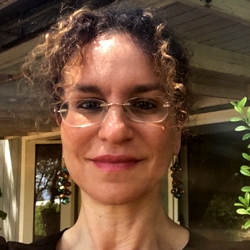

Search Results: ally
-
During a crisis like the COVID-19 pandemic, we can draw upon inner and outer resources: gratitude, awareness of our senses and breath, plus compassion for self and others. We can also expand our understanding to curtail fear -- and limit the amount of time and energy we spend fighting and resisting the truth of what’s happening.
-
Trainer Tip: Here are some options for tense moments in conversations: try a "redo", understand and recognize your habits, pause to regroup, empathize with the person so they feel heard, check your mind frame before speaking, and name some appreciations about one another.
-
It’s essential to give ourselves time to grapple with the complex feelings surrounding the brutality of state-sanctioned racism and violence. But if all we do is reflect and attend to our emotions we fail to show up, where and when it counts. So let's not perpetuate the violence by standing idly. Instead, here's ten things you can do to move into concrete action to address the continued, untenable, and horrific violence of racism. A list of resources is included.
-
While we can’t control other’s behavior, we can choose how we show up. With forethought and care, we can approach interactions with more clarity, love, and skill. Read on for practices that include: Choose wise attention, ask better questions, practice deep listening, structure the conversation, know your limits, speak your truth, share your personal stories, be present and recall permanence.
-
What happens when both people are trying to give one another at the exact same time without responding to the empathy guess? (Disclaimer: This is a humor piece. To understand why this cartoon might be funny it’s useful to have some experience with NVC and the NVC community.)
-
What happens when you or others get into evaluating what is the “right” need? (Disclaimer: This is a humor piece. To understand why this cartoon might be funny it’s useful to have some experience with NVC and the NVC community.)
-
Empathy is not suitable for every situation. And may lead to some undesirable feelings. View this single-panel cartoon for a funny example of this.
-
We all know what it’s like to be on the end of feedback that we receive as clumsy, unbalanced or even spiteful. We don’t have any control over the skill level of people who give us feedback, or their motivations. So how do we receive feedback without taking it personally, in a way that we can learn from it?
-
How to get past the sting of a painful comment? Get empathy from self or another. Then connect with the commenter's feelings and needs. The more you can do this the less personally you may take it. Then work together on specific, do-able, authentic agreement about doing something differently next time, the kind that will enable you both to shift out of reactivity. Three things need to be in place for that to work.
-
Join Dian Killian as she reframes the 4 steps of NVC (observations, feelings, needs, requests) into everyday words you might hear at work.
-
We each have the power to be the creator of our own inner experience, no matter what is going on externally. The moment you imply wrongness on others, you give power to them. In this excerpt, Aya Caspi shows that the more self-responsibility you take, the more freedom you will have.  
-
See the 4 NVC steps reframed in everyday workplace language.
-
Sylvia teaches emotion management, connecting feelings to needs, and "Screaming in Giraffe."
-
Use these cards in your practice group or NVC training to understand 4 different ways of responding to hard to hear messages. Become aware of the way you habitually respond to stimulus and develop skills to respond with empathy and express honestly.
-
If you're unpleasantly triggered during the holidays you may find yourself responding in ways you don't like. Start by acknowledging how affected you are to bring in more curiosity, mindfulness and eventually, authentic and discerning choices.
-
When someone offers continual unsoliticed feedback or advice, setting a boundary may not be easy if you care about how they might hear you. And if you don't set a boundary, you may eventually become resentful and say something you regret. Instead, here are six ways to respond, with varying degrees of effectiveness.
-
Receiving anger from another can be a reactive trigger for many of us. In this brief segment, Arnina provides us a strategy for staying in the conversation instead of physically leaving.
-
- Learn how to set up and maintain effective systems
- Acquire tips for harnessing community buy-in and the energies of key people
- Transform tension and anxiety into peaceful, life-enriching energy
- Remain grounded and confident when facing any kind of conflict
-
Listen to this audio to learn the value of focusing on needs in an NVC model, either for the first time or as a refresher course. Living from a needs-consciousness creates abundance, clarity and choice. Using three examples from participants, Mary guides the group towards identifying and then connecting with the needs of both parties involved in each situation. It becomes clear very quickly that people choose different ways to support their needs; and many times they have the same needs in a given situation. When we understand this, we are able to create peace in our relationships and negotiations.
“Everything someone does or says is an attempt to meet a need,” says CNVC Certified Trainer Mary Mackenzie. This simple statement is a foundational understanding in Nonviolent Communication; once you gain skills at living in a “needs-consciousness” you will literally change your life and your perception of the world, and improve all of your relationships.
-
Trainer Tip: In Nonviolent Communication, we consider love to be a need. Remember that needs are universal; everyone has the same ones. We all need love, but the ways in which we express it can be very different.

Quick Links
Subscription Preferences
Stay In Touch!
Looking for ways to keep up with NVC Academy news, get special offers, free resources, or words of inspiration? Here are five ways to stay engaged:

















